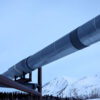Former US envoy to the United Nations John Bolton made headlines Monday when he told Fox Business News that Israel “has to move in the next eight days” or else Iran will bring its first nuclear reactor online August 21 with help from a Russian nuclear fuel shipment. “Once that uranium, once those fuel rods are very close to the reactor, certainly once they’re in the reactor, attacking it means a release of radiation, no question about it,” Bolton said, adding that without a military strike, “Iran will achieve something that no other opponent of Israel, no other enemy of the United States in the Middle East really has and that is a functioning nuclear reactor.”
This echoes the analysis from Heritage’s Ariel Cohen earlier this week: “From the moment the first drop of fuel is loaded, the plant will be considered a nuclear-energy installation as defined by the International Atomic Energy Agency. And the ayatollahs will have the potential to produce the plutonium necessary for an atomic bomb, experts say. … The loading of fuel into the reactor also has military implications. Once the fuel is loaded, the reactor will be virtually immune from an air strike because of the danger of radiation fallout spreading into the air and the reactor’s surroundings, unless a precision strike disables the facility while leaving the containment chamber intact.”
Bolton’s statements highlight the failure of President Barack Obama’s engagement policy with Iran. The Iranian regime’s drive for nuclear weapons, rapid progress in building up its ballistic missile arsenal, and ominous rhetoric about destroying Israel, have potentially created a–literally–explosive situation. Israel has every right to take action in self-defense against Iran’s growing threat. The United States would almost certainly be drawn into any resulting Israeli-Iranian conflict. Back in January, The Heritage Foundation drafted an outline for a Plan B to contain the fallout if the Obama administration’s engagement strategy failed. That plan includes:
- Recognize Israel’s right to self-defense against a hostile Islamist dictatorship that also threatens U.S. interests and regional stability.
- Prepare for war with Iran.
- Deploy missile defenses to defend Israel and other U.S. allies from Iranian missile attacks.
- Hold more frequent missile defense exercises with Israel and other allies.
- Enhance deterrrence against Iranian attacks.
- Mitigate the impact of a possible Iranian-instigated oil crisis.
- Block arms sales to Iran.
- Veto any Security Council resolution that does not acknowledge Iran’s provocations and continued defiance of U.N. resolutions.
You can read the full recommendations here. More on what we do and don’t know about the Iranian nuclear program here.




























